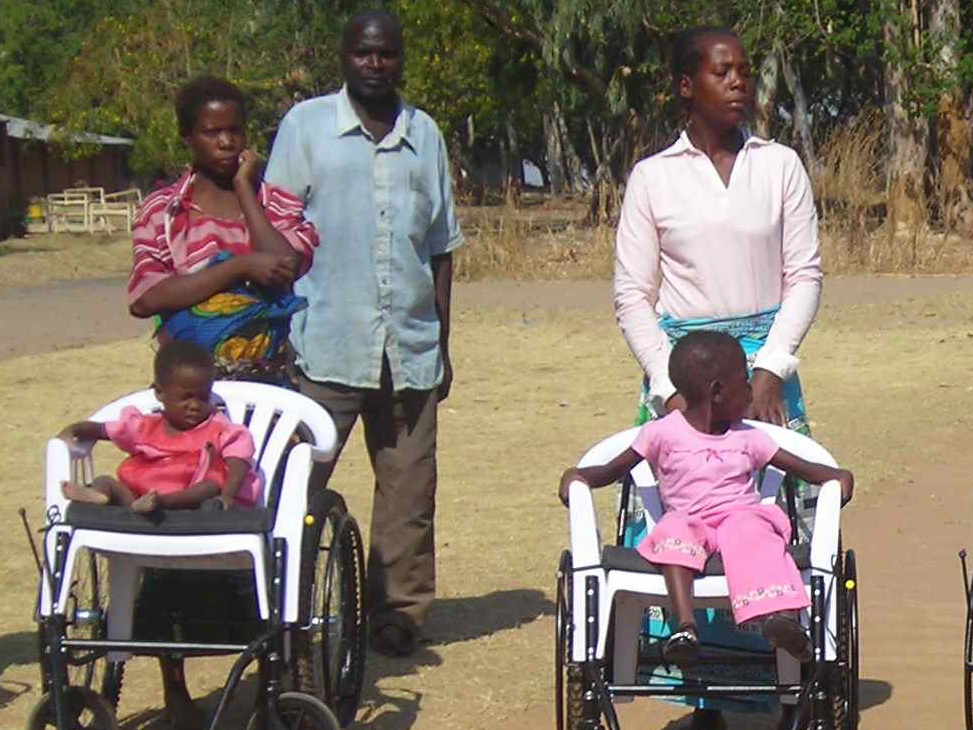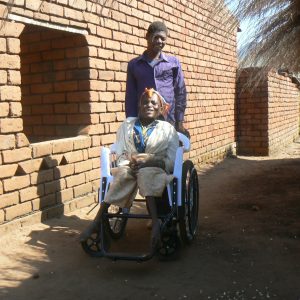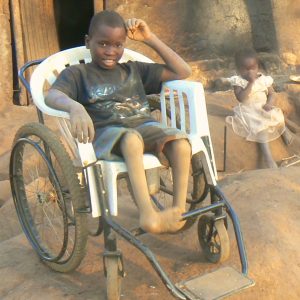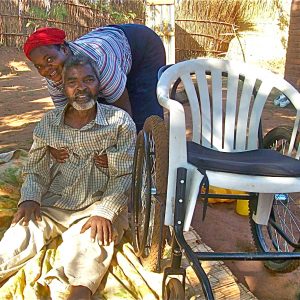
The environment of Malawi offers a unique challenge when it comes to mobility. Eighty-five percent of the population lives in rural areas of small villages, most some distance from the main road. Dirt roads, pot-holed, and extremely slick and hazardless when wet, are the only way in and out of the village, and for an adult with mobility issues, a trip away from the village is a faraway dream. For children who cannot get around on their own the only way to move about is for someone to carry them on their back. A wheelchair is something a village family will never be able to afford, and therefore those with mobility issues are often confined to their mud-walled, thatch-roofed hut, for the rest of their lives!
Over the years the Malawi Project, joining resources with Free Wheelchair Mission of Irvine, California, has shipped and distributed 4,500 all-terrain wheelchairs. Unlike conventional wheelchairs, the all-terrain wheelchair provides basic mobility to a broad range of recipients and is recognized as a means of transportation for those who do not require postural support. The large bicycle wheels and the plastic seat are easy to replace in an economy that does not make available replacement parts in the medical marketplace for wheelchairs. The units are designed for 3 t o5 years of use under normal use.



